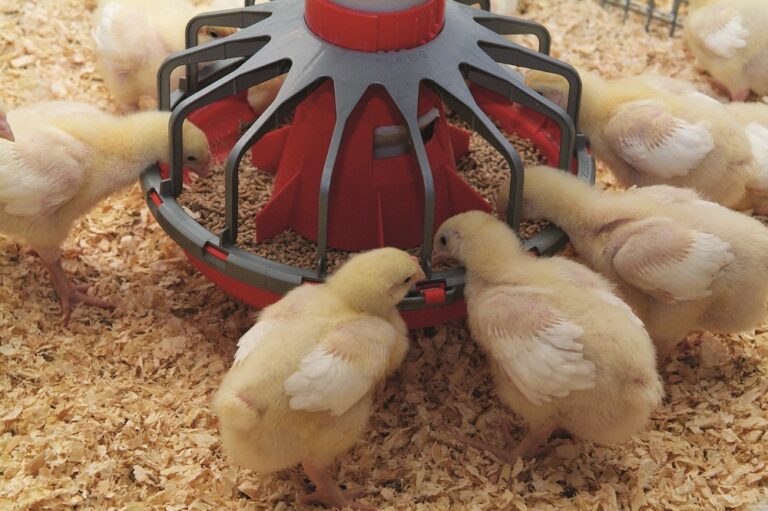Nano delivery of mineral supplements in poultry diets leads to improved bird growth, feed consumption and digestibility, a new study has found.
A team at Nottingham Trent University used a novel method of producing nano minerals coated with amino acid to investigate the impact of feeding nano zinc to broiler chickens.
They found that the method significantly improved bird weight gain and increased the feed intake of broilers compared to those which were given an inorganic zinc form. Digestibility was also improved, along with a some positive impact on tibia strength.
For welfare reasons, the improvement in growth rate of modern broilers needs careful management, to avoid skeletal issues during rearing such as lameness and lameness-related culling, and issues during processing – so the concurrent improvement in bone strength alongside improved weight gain was an important finding.
Due to their small size, supplying the minerals in nano form increases their bioavailability, meaning they are more effectively delivered to the body. And coating them with amino acid further supports their uptake.
Many plant and animal sourced poultry feeds contain zinc, but they also commonly contain substantial quantities of phytate, which binds strongly to zinc preventing its absorption in the gastrointestinal tract.
This lowers the bioavailability of zinc in these diets to below the requirements for healthy growing poultry. Zinc deficiency in poultry has been shown to cause slow growth, shortened and thickened legs with an enlarged hock and frizzled feathers. To negate these effects, poultry diets are routinely supplemented with additional zinc.
The study, which involved the university’s School of Animal, Rural and Environmental Sciences and School of Science and Technology, is published in the journal Animals.
Emily Burton, Professor of Sustainable Food Production at Nottingham Trent University, said: “Zinc has such a positive effect on poultry health and growth that it is great to find a low-cost way of making zinc highly digestible. This means we can now use small amounts of zinc very efficiently, so the risk of polluting the environment with unused zinc in poultry manure is lowered.”
NTU’s Dr Gareth Cave, lead scientist on the study, added: “Nanotechnology is becoming widely adapted in a variety of different fields from medical imaging to plant food. One of our research aims at NTU is an interdisciplinary approach that focuses on addressing global food security, whether that is improving food production or increasing the national value of staple crops like potatoes.
“In this study we demonstrate how the improved bioavailability that nanotechnology offers can be used use in the farmed animal feed sector to increase animal welfare and production, while also reducing potential downstream environmental impact of farm waste.”


